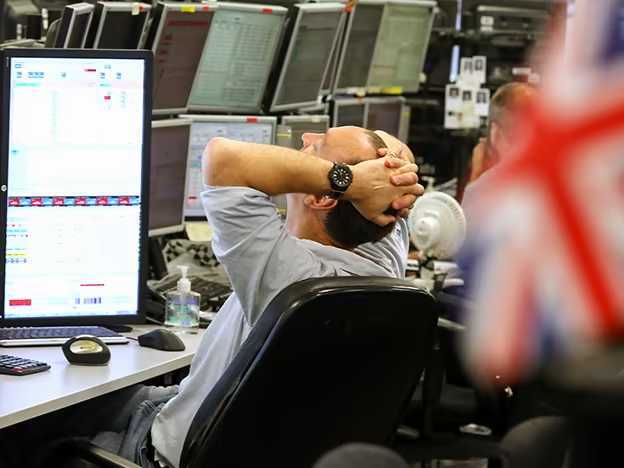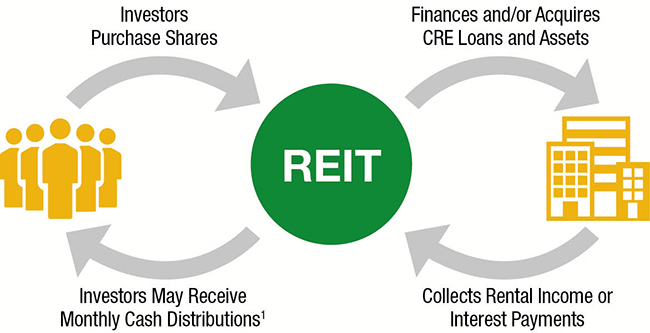What Happens When a Stock Broker Goes Bust?
We've all heard horror stories on the news. A once-successful stock broker gambles with their client's money and ends up bankrupt, leaving investors without their life savings and a mess to clean up behind them.
It's a terrifying thought for anyone who entrusts their investments to someone else, but what happens when a stockbroker goes bust? To answer this question, we aim to shed some light on the issue while offering insights into what steps you can take if you find yourself in such a situation.
Read on as we look at everything from personal accountability among brokers to investor protection policies that may help you weather the storm.
What is a stockbroker, and what do they do?
A stockbroker is a professional who buys and sells stocks, bonds, and other securities on behalf of investors. They are registered with the Financial Industry Regulatory Authority (FINRA). They must adhere to certain rules and regulations to ensure that transactions are conducted properly and according to federal law.
Stockbrokers provide valuable advice on which stocks and bonds to purchase and when and help investors manage their portfolios.
What happens when a stockbroker goes bust?
When a stockbroker goes bankrupt or fails to remain compliant with FINRA regulations, they must cease all activities related to the buying and selling securities, including providing advice. This can devastate investors, as they may lose a significant portion of their investment.
In such cases, investors should contact FINRA or the Securities and Exchange Commission (SEC) to file a complaint and seek repayment of losses due to the broker's misconduct.
Additionally, investors must take steps to protect themselves against future losses by conducting thorough research into any stockbroker before investing. If an investor suspects a stockbroker of misconduct, they should immediately contact FINRA or the SEC.
How do you become a stockbroker, and what are the requirements?
To become a stockbroker, you must typically have a bachelor's degree in finance, economics, or business administration or possess other related credentials. Additionally, most states require individuals to obtain a license for selling securities.
Such licenses are given after passing an exam and meeting experience requirements like having worked in the field of investments for 2-4 years. The licensing process also includes an FBI background check and fingerprinting.

What happens when a stockbroker goes bankrupt or becomes insolvent?
When a stockbroker declares bankruptcy or becomes insolvent, the company can no longer pay its debts and must close its doors. This can have serious ramifications for those who invested money with the firm. If this happens, the trustee appointed by the court will take control of the assets of the bankrupt brokerage, including any customer accounts that have funds in them.
The first step taken by the trustee is to assess the financial position of the brokerage and determine how much money is owed to creditors, including customers who have outstanding investments with the firm. The trustee may then attempt to recover as many assets as possible by liquidating any remaining securities or other holdings belonging to the bankrupt brokerage.
The trustee will then attempt to contact customers and make arrangements for the return of the funds that were held in their accounts. If a customer cannot be contacted or fails to respond to attempts by the trustee, any remaining funds in that person's account may be turned over to the local bankruptcy court or transferred into a trust fund for distribution among the creditors.
In some cases, the trustee may be able to locate additional assets that can be used to reimburse customers who have lost money in bankruptcy. If these funds are available, they will be distributed among eligible claimants according to the priority of their claims. It is important for customers affected by brokerage bankruptcy to keep an eye out for any notifications or updates from the trustee about the progress of their claim.

How can investors protect themselves against stockbroker fraud or bankruptcy?
Investors can protect themselves against stockbroker fraud or bankruptcy by researching the stockbroker and their credentials, understanding the risks of investing, and diversifying their investments. When selecting a stockbroker, investors should ask questions such as: how long has the firm been in business? What type of professional credentials do they hold? What experience do they have in the stock market?
What are research services available to them? What customer service do they provide? What kind of protection and assistance do they offer if something goes wrong with a trade or investment? Investors should also be aware of the risks associated with investing. Investing in stocks and other securities carries inherent risk. Even if the stockbroker is legitimate, there is always the risk that investments may lose value or that a stockbroker could become insolvent.
Finally, diversifying investments can help protect against losses in any particular security or industry. Spreading investments across different types of assets and geographic regions can reduce risk and spread out potential losses. By researching stockbrokers and understanding the risks associated with investing, investors can protect themselves from stockbroker fraud or bankruptcy and ensure their investments are secure.
What is the role of the Securities and Exchange Commission (SEC) in regulating stockbrokers
The Securities and Exchange Commission (SEC) is the primary regulator of stockbrokers in the United States. The SEC requires that all registered brokers abide by certain rules, regulations, and standards of conduct. This includes providing investors with accurate security information, buying or selling stocks only after obtaining investor consent, and handling customer funds responsibly.
When a stockbroker goes bust, it is important for investors to understand their rights and what steps they need to take. The SEC will investigate the issue and determine if there has been any wrongdoing on the broker's part. Depending on the outcome of the investigation, the broker could face fines, suspension, or even permanent revocation of their license to operate.
If the SEC finds that a broker has illegally misused customer funds or violated securities laws, investors may be able to file a compensation claim. The SEC can help investors reclaim losses and damages from the broker's misconduct.
Can investors file lawsuits against failed brokers or their firms?
Yes, investors may be able to file a lawsuit against their failed broker or brokerage firm under certain circumstances. Generally speaking, if the broker or firm has acted negligently and caused losses for the investor due to their actions, there may be grounds for a legal claim.
Some common examples of negligence include: churning (excessive trading without regard for the investor's best interests); unsuitable investments; failing to follow instructions; providing false or misleading information; and making unauthorized transactions.
FAQs
What happens when a stockbroker goes bust?
When a stockbroker goes bankrupt or insolvent, it is considered to be in default and unable to meet its obligations to its customers. In these cases, the stockbroker's assets will typically be frozen by the authorities so that they can investigate and determine how customer funds can be returned. Investors should contact the relevant regulatory body in their jurisdiction to find out how they can access any remaining funds.
What should I do if my stock broker goes bust?
The first step is to contact the relevant regulatory body in your jurisdiction and make a formal complaint. Depending on the extent of the problem, you may be offered compensation from either the regulator or any remaining funds held by the broker. In addition, it is important to seek professional financial advice to assess the situation and explore further options.
What are the risks of using a stock broker?
The main risks associated with using a stock broker include potential fraudulent activities, lack of regulation or oversight, poor liquidity, and lack of knowledge or experience on the part of the investor. It is important to conduct thorough research into any stock broker before investing and to familiarize yourself with the risks associated with stock trading. It is also important to diversify your investments and rely on something other than anyone stockbroker for all your investments.
Conclusion
This article has helped to shed light on What Happens When a Stock Broker Goes Bust? In short, when a stockbroker goes bust, customers may be left with significant losses and could seek legal action against the broker.
Investors may be protected under regulations such as SIPC and FDIC insurance, depending on the bankruptcy circumstances. Additionally, customers may receive notice from the SEC or their state securities regulator of the broker's bankruptcy.
To avoid being caught in a situation where a stock broker has gone bust, it is wise to research and compare brokers before investing your money with any of them.



